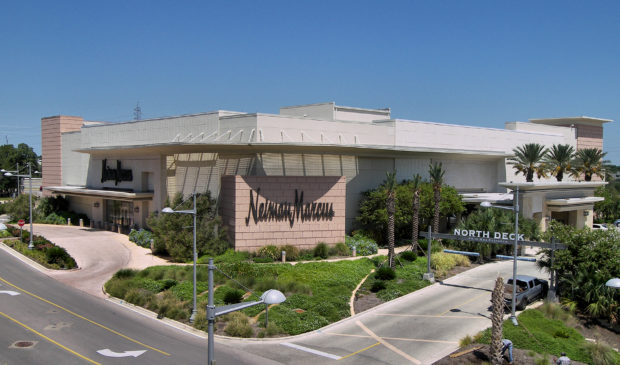Council wants to look at 380 agreements again
Wednesday, June 19, 2019 by
Jo Clifton A $165,000 economic development agreement between the city of Austin and Austin Community College to help the college provide and maintain what is described as “leading edge” technology equipment for ACC’s fashion incubator could be an early casualty of Council’s drive to save money in the face of the legislatively mandated 3.5 percent revenue caps. Although the caps will not be in effect when Council makes budget decisions in August, Council members are clearly thinking about how they can spend less in the upcoming year.
At Tuesday’s work session, Council Member Jimmy Flannigan indicated that he would vote no on funding for the equipment, even though he has no questions about the quality of the program.
After Council Member Natasha Harper-Madison said some people might think the program was frivolous because it includes fashion design, Flannigan said, “I assure you I am not hearing frivolous. This isn’t about the quality of the program … ACC does not have the tax cut that we have and they have a much bigger tax base. At some point I think it’s important to talk about the larger financial impact that we’re going to be facing.”
Council Member Leslie Pool suggested that Council approve $55,000 in yearly equipment maintenance on Thursday, but not make a commitment for funding after that.
Mayor Pro Tem Delia Garza said she would like to postpone the matter until August when Council is considering its entire budget.
That conversation led directly to the discussion about so-called 380 agreements, named after Chapter 380 of the Local Government Code. One of those agreements is with the Domain shopping center and it has been controversial since it was first approved by Council in May 2003.
Several Council members expressed an interest in reviewing the 380 agreements, in particular the agreement with the Domain.
According to information provided by the city, the last payment made to the Domain was in the amount of $1,936,467 in May 2017, based on “performance verified by an independent third-party.” That third party has not begun reviewing compliance for the 2016, 2017 and 2018 property tax years because Simon Property Group, owner of the Domain, is in litigation over the value of its property, according to information from the Economic Development Department. There is normally a two-year lag for payments.
The city pays Simon Property Group for providing 42 apartments that are affordable for people making 65 percent of the median family income. EDD reports that “the cost to buy down the 42 units to a rate affordable to 65 percent MFI households with the remaining nine years left in the term (of the agreement) is estimated at $2,082,996, assuming that all of the affordable units are studios. If the properties are one-bedroom or multi-bedroom units, the price would increase.”
Flannigan, Garza and Council members Kathie Tovo, Pio Renteria, Greg Casar and Alison Alter all expressed an interest in looking at the city’s current agreements, which range considerably in dollar value, benefits received and length of time they have been in effect.
Julia Campbell, who heads up the city’s global business expansion team, provided the following list of 2017 payments made by the city: Apple: $1,410,494.14; Hanger: $50,000; Merck: $0 (agreement executed in 2017); Visa: $194,000; Samsung: $9,897,138.22; HID Global: $97,357.29 and Advisory Board: $52,820 (now inactive).
Most of the agreements entered into after the Domain include substantial benefits for the city, generally a promise of jobs that pay a good salary. At the time the city entered into the agreement with the Domain, city leaders were particularly concerned about the fact that the city was losing sales tax money to places like Williamson County. Supporters of 380 agreements will argue that these agreements have had a net positive economic impact on the city and that any move by the Council to disrupt them will be bad for future business.
Photo by Larry D. Moore [CC BY-SA 3.0], via Wikimedia Commons.
The Austin Monitor’s work is made possible by donations from the community. Though our reporting covers donors from time to time, we are careful to keep business and editorial efforts separate while maintaining transparency. A complete list of donors is available here, and our code of ethics is explained here.
You're a community leader
And we’re honored you look to us for serious, in-depth news. You know a strong community needs local and dedicated watchdog reporting. We’re here for you and that won’t change. Now will you take the powerful next step and support our nonprofit news organization?










